
Japan Stamp Supremacy – Uber Cup Review
Japan’s powerful armada sailed from Bangkok with the Uber Cup title – their sixth overall and first in 37 years – with commanding performances through the TOTAL BWF Thomas & Uber Cup Finals 2018.
Over the last few years, Japan have built an irresistible force capable of reclaiming the World Women’s Team Championships. With several singles players and doubles pairs in the top 15, Japan were spoilt for choice by the time the Uber Cup came around. The top seeds were expected to win the title and they did – dropping just two matches on the way.
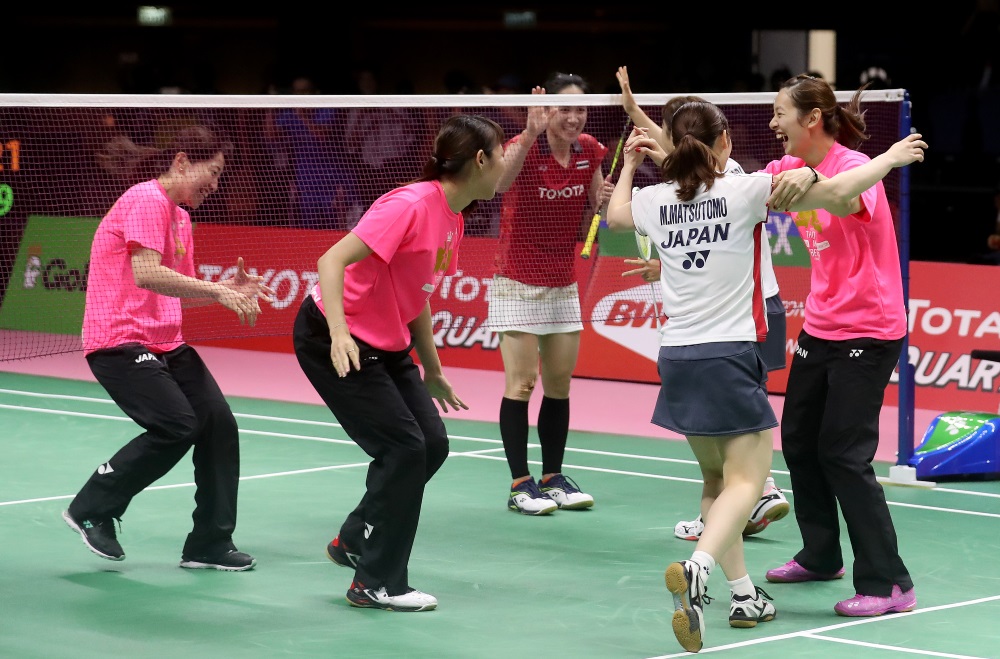
Their 3-0 rout of Thailand in the final was something of an anti-climax for the crowd, after they’d witnessed the home team sensationally upset reigning champions China the previous day.
 China’s defeat in the semi-finals was the single most significant occurrence of this year’s Uber Cup. For the first time ever, since their appearance in Uber Cup competition in 1984, China failed to make the title round. With 14 titles and three runner-up places, China have been the pre-eminent power in the women’s game since the early 1980s. Their semi-final loss might turn out to be a rare anomaly, but it also signified that other teams have stepped up their game. Since Rio 2016, China have placed their faith on a new generation of young shuttlers, who will need time to mature.
China’s defeat in the semi-finals was the single most significant occurrence of this year’s Uber Cup. For the first time ever, since their appearance in Uber Cup competition in 1984, China failed to make the title round. With 14 titles and three runner-up places, China have been the pre-eminent power in the women’s game since the early 1980s. Their semi-final loss might turn out to be a rare anomaly, but it also signified that other teams have stepped up their game. Since Rio 2016, China have placed their faith on a new generation of young shuttlers, who will need time to mature.
The semi-final showcased all that a team contest could offer. The Thais drew their energy from the full-house crowd that egged them on after every point; China fought gamely despite the inexperience of their first two singles players – Chen Yufei (against Ratchanok Intanon) and Gao Fangjie (against Nitchaon Jindapol). China’s doubles stood up to the challenge, with Chen Qingchen/Jia Yifan and Huang Yaqiong/Tang Jinhua levelling out the deficits suffered in the singles, and setting up a thrilling fifth match between Li Xuerui and home hope Busanan Ongbamrungphan.
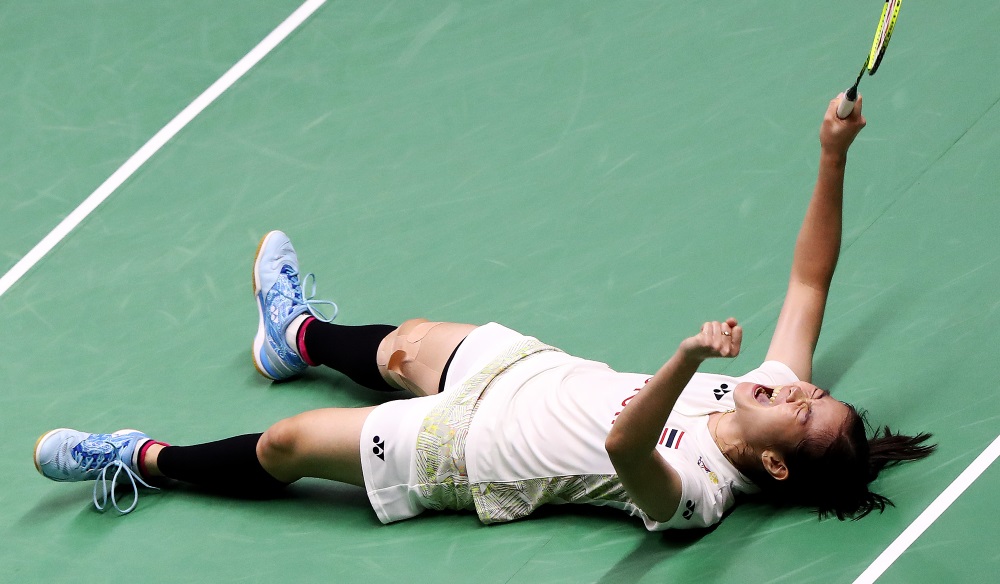
And while Li had experience on her side, what weighed against her was that she has only recently made a full comeback from injury. How much the injury layoff has affected her was immediately apparent, as Ongbamrungphan powered past her 21-11 in the opening game.
Li could barely do any better in the second; the former Olympic champion looked dazed as her Thai opponent was ruthless in her decimation, allowing Li just nine points. With the 21-11 21-9 victory, Thailand’s players swarmed the court while their supporters in the stands danced with joy.
It was the first-ever Uber Cup final for Thailand, and the hosts couldn’t have asked for more.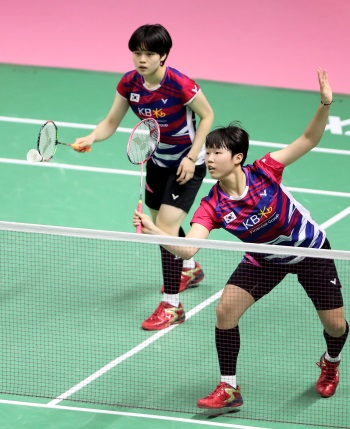
Their happy head coach Rexy Mainaky said the team had exceeded their target – which was to reach the semi-finals – and wanted to set the bar high for the Asian Games: “The team is getting close to the level of China and Japan. We have to be more consistent. When we get back to training, we will try to evaluate what we need to add. We need to get consistent in the physical side. Now the psychological side has improved. So it’s not just about skill. This is a boost for the Asian Games as it is a few months away. If we keep the spirit we can challenge Japan, China and Indonesia for the gold medal. I have to set a high target. We are contenders for the gold,” Mainaky said.
Like China, Korea too have been banking on a new generation. With senior players like Chang Ye Na, Jung Kyung Eun and Kim Ha Na missing the event (Lee So Hee was also out with a back injury), Korea’s young guns acquitted themselves well. Teenagers Lee Yu Rim and Baek Ha Na were standouts, as was the 16-year-old schoolgirl An Se Young.
Korea came through Group C beating Mauritius and Russia easily but struggling against Denmark. The Koreans were down 1-2 but Lee/Baek and An Se Young saw them through. In the quarter-finals, against Canada, Korea were down 0-1 before Lee Jang Mi, Lee/Baek and An Se Young prevented further damage.
The Koreans stretched Japan in the semi-finals, with the scratch combination of Shin Seung Chan/Kim So Yeong blitzing Yuki Fukushima/Sayaka Hirota to make it 1-1 after Sung Ji Hyun had fallen in quick time to Akane Yamaguchi.
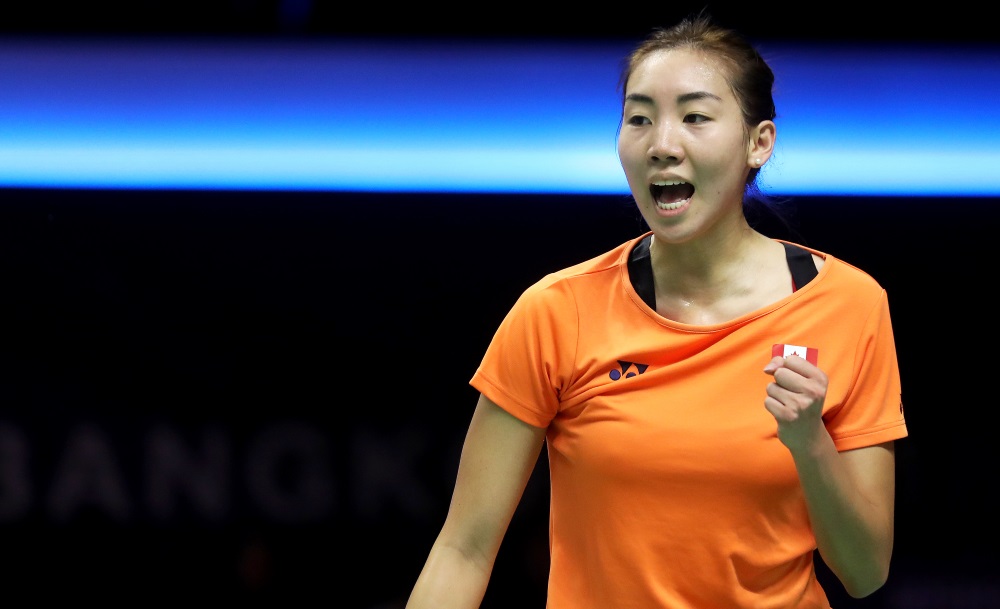
Lee/Baek had Misaki Matsutomo/Ayaka Takahashi in a spot of bother by taking the first game of the fourth match, but the experienced Japanese asserted themselves and pulled Japan to safety.
There was plenty of exciting action in the group stage. India had arrived with an under-strength squad minus Pusarla V Sindhu, Ashwini Ponnappa and Sikki Reddy, and Canada took advantage to post a 4-1 victory in Group A. In Group D, Indonesia prevailed in a close tie, 3-2, over Malaysia, with Gregoria Mariska Tunjung winning the crucial contest against Goh Jin Wei. Tunjung also shone in the final group tie against China, stopping Gao Fangjie 23-21 21-16 but she could not prevent China from topping the group.
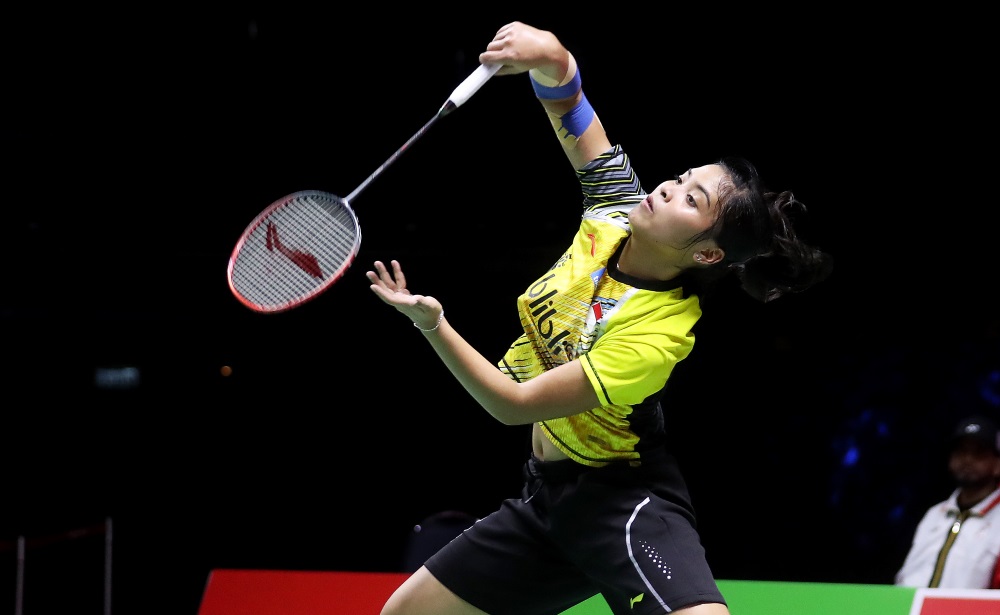
Tunjung, Chinese Taipei’s Tai Tzu Ying and Canada’s Michelle Li were among the individuals who had a good tournament. Tai won her four matches – against Hong Kong’s Cheung Ngan Yi, Germany’s Luise Heim, Thailand’s Ratchanok Intanon and Japan’s Akane Yamaguchi – helping her gain 9,517 points and cementing her place at the top of the Women’s Singles rankings.
The Uber Cup signalled the arrival of Thailand as a power, while ringing alarm bells for China. Japan have now set the bar high, and the other teams have some catching-up to do.
Thomas & Uber Cup News
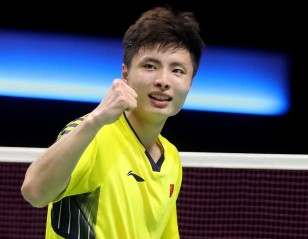
China’s Young Heroes – Thomas Cup Review 13 June 2018

Title No.10 for China – Thomas Cup Final: TOTAL BWF Thomas &... 27 May 2018
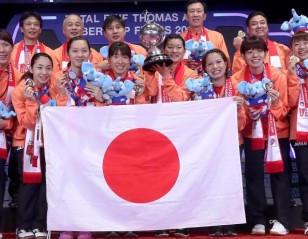
Women of the Rising ‘Stun’! – Uber Cup Final: TOTAL BWF TUC... 26 May 2018
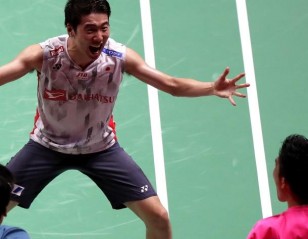
‘Tongue-Twisters’ Torment Titlists – Thomas Cup Semi-Finals: TOTAL BWF TUC Finals 2018 25 May 2018
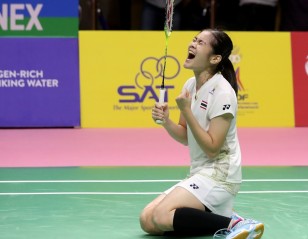
‘Uber’ Achievers! – Uber Cup Semi-finals: TOTAL BWF TUC Finals 2018 25 May 2018
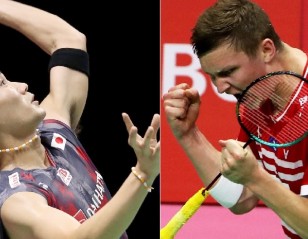
Denmark, Japan into Semis – Day 5 – Session 3: TOTAL BWF... 24 May 2018
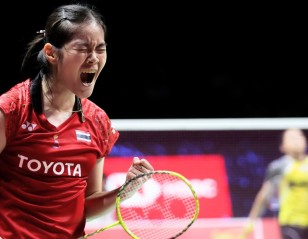
Emotional Win for Thailand – Day 5 – Session 2: TOTAL BWF... 24 May 2018

China, Korea Overcome Jitters – Day 5 – Session 1: TOTAL BWF... 24 May 2018

Jorgensen Delivers – Day 4 – Session 3: TOTAL BWF TUC Finals... 23 May 2018
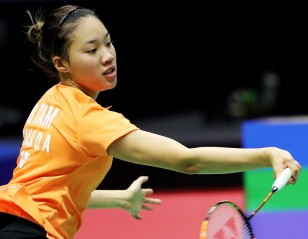
Canada Through to Quarters – Day 4 – Session 2: TOTAL BWF... 23 May 2018
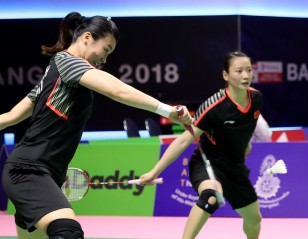
China Hold Firm – Day 4 – Session 1: TOTAL BWF Thomas... 23 May 2018
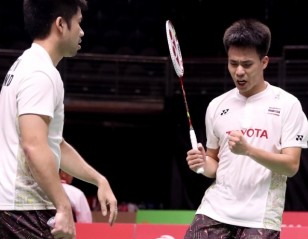
Resilient Indonesia – Day 3 – Session 3: TOTAL BWF TUC Finals... 22 May 2018
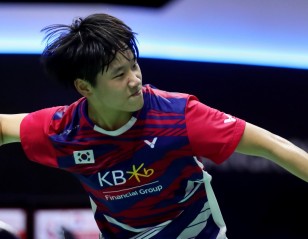
Schoolgirl to the Rescue – Day 3 – Session 2: TOTAL BWF... 22 May 2018

German Scare for Japan – Day 3 – Session 1: TOTAL BWF... 22 May 2018
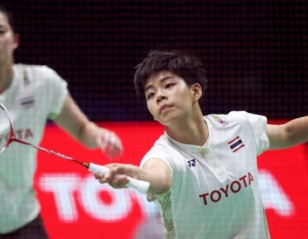
China, Thailand Look Ahead – Day 2 – Session 3: TOTAL BWF... 21 May 2018
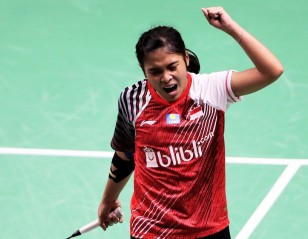
Indonesia Pass Malaysian Test – Day 2 – Session 2: TOTAL BWF... 21 May 2018
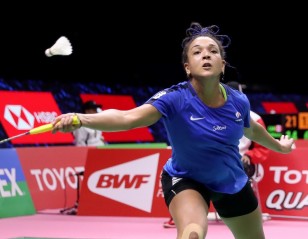
Debutants Relishing Experience – Day 2 – Session 1: TOTAL BWF TUC... 21 May 2018

Korea Prevails – Day 1 – Session 3: TOTAL BWF TUC Finals... 20 May 2018
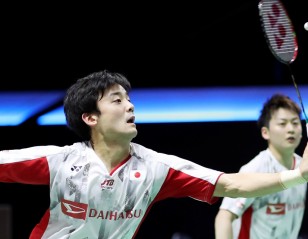
Japan Start Strong – Day 1 – Session 2: TOTAL BWF TUC... 20 May 2018

Corvee Stars in French Victory – Day 1 – Session 1: TOTAL... 20 May 2018
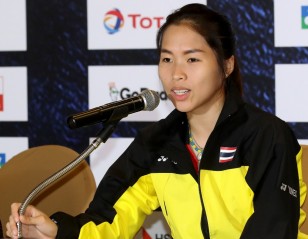
Banking on Home Support – TUC Finals 2018 19 May 2018

Defending Champions Confident Despite Setbacks – TUC Finals 2018 19 May 2018

Honour for Fernandez, Sornprachum and Klutzke 19 May 2018

Strong Danish Line-up – Preview: Thomas Cup Squads 11 May 2018
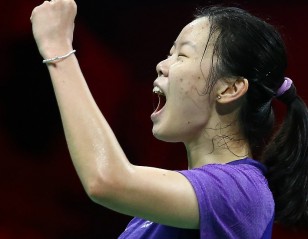
Li Xuerui Returns – Preview: Uber Cup Squads 9 May 2018
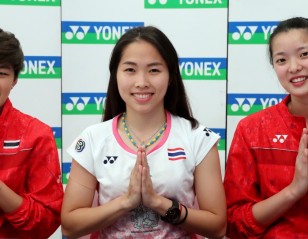
Bangkok Beckons! 2 May 2018

Indonesia, Japan Start ‘Thomas-Uber’ Action 12 April 2018
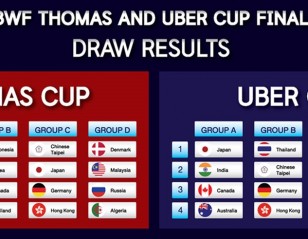
Japan in ‘Group of Death’ 22 March 2018

Hong Kong, France Qualify for TUC 2018 20 March 2018
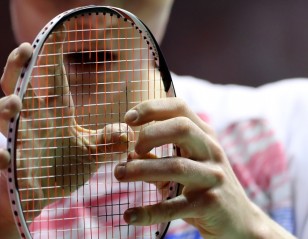
Fitness, Equipment in Focus at World Congress 4 March 2018

Algeria to Debut in Thomas Cup 26 February 2018
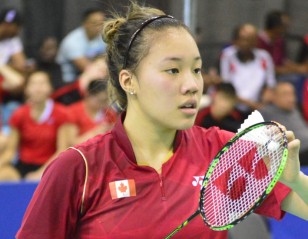
Canadian Supremacy – Finals: M&F Pan Am Team Championships 2018 19 February 2018

Denmark’s Reign Continues – Finals: 2018 European Men’s & Women’s Team Championships 19 February 2018

Peru Go Down Fighting – Day 3: M&F Pan Am Team Continental... 18 February 2018
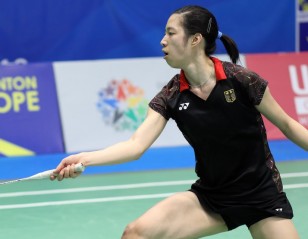
Germany in Title Bout – Day 5: 2018 European Men’s & Women’s... 18 February 2018
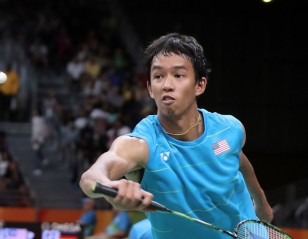
Jamaica, Peru in Semis – Day 2: M&F Pan Am Continental Team... 17 February 2018

Spain Survive Turkish Challenge – Day 4: 2018 European Men’s & Women’s... 16 February 2018
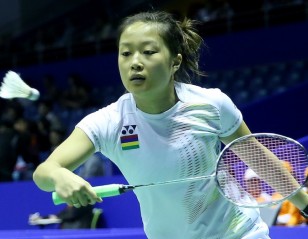
Algeria Make History – Finals: All Africa Men’s & Women’s Team Championships... 16 February 2018
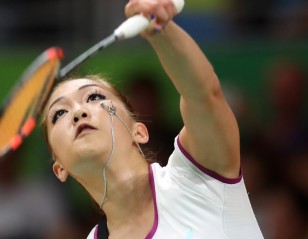
Tight Wins for Nigeria, Mauritius – Semi-finals: All Africa Men’s & Women’s... 15 February 2018

Poland Ease Past Portugal – Day 2: 2018 European Men’s & Women’s... 15 February 2018

Indonesia, Japan Triumph – Finals: E-Plus Badminton Asia Team Championships 2018 12 February 2018
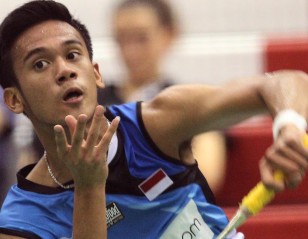
Kholik Stars in Indonesia’s Win – Semi-finals: E-Plus Badminton Asia Team Championships... 10 February 2018
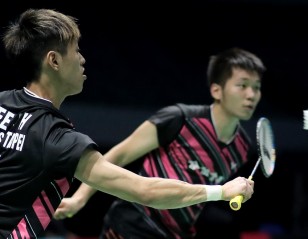
Chinese Taipei Outplay Thailand – Day 2: E-Plus Badminton Asia Team Championships... 8 February 2018
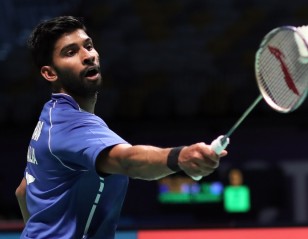
Australia Prevail in Thriller – Victor Oceania Team Championships 2018 7 February 2018
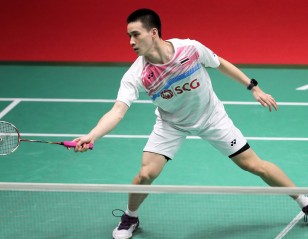
Close Win For Thailand – Day 1: E-Plus Badminton Asia Championships 2018 7 February 2018


































